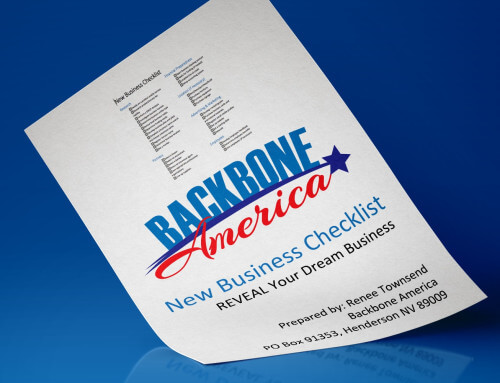Considerations Before You Buy a Business
Starting a business from scratch can be risky and full of uncertainty. If you don’t have enough funds or outside income to tide you through the initial growth, your business could be doomed before you even start. Purchasing a business can come with huge advantages over starting a business from scratch. However, just like a pre-owned vehicle, a business built by someone else can come with just as much baggage. Today, we’ll look at some considerations before you buy a business.
Advantages & Disadvantages of Buying an Existing Business
 As I mentioned, purchasing a business can subject you to the business’s preexisting conditions. However, a business purchase can come with quite a few advantages.
As I mentioned, purchasing a business can subject you to the business’s preexisting conditions. However, a business purchase can come with quite a few advantages.
Foundation. An established business already has some ground work put into it. It may have built a client base and a reputation in the community. However, you’ll want to be sure the reputation they’ve built is sound. The current owners may have already worked through the major issues of running a business, making your life as an owner a lot easier. On the other hand, the work put into an existing business can come with a high price, called intangible assets. As banks don’t see intangible assets as collateral, you may find yourself with more upfront costs to cover the intangible assets than if you’d started your own business.
Income. Existing businesses typically come with an income stream. Whereas starting a business from the ground up can cause extremely financial stress, purchasing can potentially provide immediate income. You may also find obtaining financing for a business with a solid track record is easier than obtaining it for a startup. The current owner may also be trying to sell a sinking ship. It’s important to know the financial state of the business before you purchase.
 Employees. An existing business may already have trained employees. Having good employees in place can ease some of the burden of having to find, weed through, hire, and train new individuals, which can be full of trial and errors.. On the flip side, may also have developed habits you’d rather not see in your employees or even be a bad fit all together.
Employees. An existing business may already have trained employees. Having good employees in place can ease some of the burden of having to find, weed through, hire, and train new individuals, which can be full of trial and errors.. On the flip side, may also have developed habits you’d rather not see in your employees or even be a bad fit all together.
Finding a Business for Sale
Business Broker. Business Brokers are to businesses as realtors are to real property. That is, a broker will facilitate the buying and selling of a business. Their role can consist of advertising the business, negotiating the purchase price, doing due, and general assistance with the buying/selling of the business. In return, a business broker receives a commission for the sell.
Franchises. Franchises might also offer an avenue into business ownership. Franchises are a type of business in which the franchise owner purchases the licensing right to do business under an established trade name. I won’t be going into detail of a franchise at this time. However, a franchise typically comes with brand recognition, which can start you out with a loyal customer base.
 Realtors. Realtors not only sell real property, but sometimes they sell businesses also. Keep in mind, realtors are in the business of selling real property, not necessarily businesses. As such, they may have a difficult time evaluating or marketing a business property.
Realtors. Realtors not only sell real property, but sometimes they sell businesses also. Keep in mind, realtors are in the business of selling real property, not necessarily businesses. As such, they may have a difficult time evaluating or marketing a business property.
Direct Inquiries. Sometimes business owners may just need the right person to approach them and ask if they’re willing to sell their business. I often find this the case in the service trade industry, such as plumbing, electricity, HVAC, and such.
Valuation of a Business
The value of a business is subjective. However, that doesn’t mean you can come up with a rough sticker price. Keep in mind, the seller will have his/her own idea of what the business is worth. It’s important that you do your own research to ensure you’re getting a bang for your buck. There are three main approaches to estimating the fair market value of a business, which I’ll cover today.
Income. The Income Approach looks at the future economic benefit of a company. That is, what kind of revenue can you expect to generate in comparison to the level of risk you acquire by purchasing the business.
 Asset. The Asset Approach takes a look at the assets and liabilities of a company and attempts to estimate the cost of creating a similar business. Since it looks at hard numbers, it tends to miss one of the most valuable assets… the intangibles, which I mentioned above.
Asset. The Asset Approach takes a look at the assets and liabilities of a company and attempts to estimate the cost of creating a similar business. Since it looks at hard numbers, it tends to miss one of the most valuable assets… the intangibles, which I mentioned above.
Market. The Market Approach looks at comparable businesses sell and what they’re selling for. It’s kind of like in appraisals in the real estate industry where they look at comparable houses.
Recently, an individual asked me what the 30 years he put into his business was worth. That’s a tough one, because there’s an emotional attachment to 30 years of effort. As awful as it sounds, the cold hard truth is his 30 years of effort really comes down to how much someone is willing to pay for the business. As I said earlier, business valuation is subjective. In the end, the fair market value is really about what the seller is willing to sell the business for and what the buyer is willing to buy the business for.
If you’re looking for a rough idea of what a business you’re trying to sell or buy, I encourage you to check out my financial services. I’d be happy to help.
Final Thoughts
I’ve covered quite a bit in this article. However, please don’t think this is an all-inclusive list of considerations. Buying a business can be a complicated endeavor. If you’re unfamiliar, I encourage you to seek assistance navigating through process. As I mentioned above, a Business Broker can help facilitate the buying or selling of a business. And of course, if you leave your questions in the comments below, I’d be happy to answer your questions to the best of my abilities.






Leave A Comment